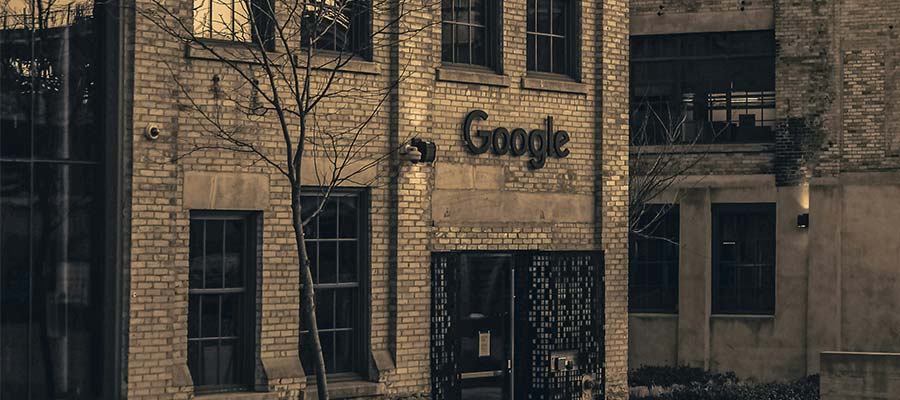Personalized Web Design – Bringing Back the Spirit of the Early Web
The early internet (we’ll define it as 1995– 2005) was a daring location. The story was that anyone could take part in this new tool. Therefore, it drew in a diverse mix of makers.
We often tend to recall to nowadays with some cringe. Yes, the design and modern technology of that age were lacking. And there were very few requirements to mention. There were additionally lots of positives.
I’m prejudiced– my web design journey began in this period. I have a great deal of nostalgia. I’ve written about it a time or 10.
However there are points I miss out on about those days. Practices and ideas that defined the enthusiasm of the time. Things that have actually time out of mind discolored.
Because of this, right here are some parts of the early web I ‘d like to see return– also if just for a day!
The Absence of Big Data
So-called huge information had not been prevalent in the 90s. Google would certainly grow those seeds in the years. The web was yet to be managed by formulas and trackers.
Possibly we didn’t have the exact same level of customization. So what? The side benefit was an absence of adjustment.
We still saw this in the very early days of Facebook and Twitter. Keep in mind when your feeds were all in live? It gave a feeling of witnessing things as they happened.
Early internet search engine had similar benefits. You were most likely served the same results as somebody beyond of the world. Much less practical? Certain. Additionally much less intrusive.
What we see now is inevitably regulated by business. We don’t necessarily see the most effective search engine result. We see whatever Google’s algorithm regards suitable.
Social media site companies make it more challenging to view your feeds in chronological order. And ads are a little too personal, in my point of view.
It’s easy to understand why things have actually changed. Manipulating individuals is a lucrative company. Plus, marketers want to target particular target markets.
Still, I miss the days when the web had a lot more randomness. Coming across something new looks like a lost art.

The Simplicity of Website Design & Structure”Things were less complex at that time.”That’s an usual refrain when adults speak about their childhood years.
I assume it likewise puts on web design and framework. There’s a great factor for that simpleness. HTML was basic. CSS didn’t even exist for part of this moment. And there was only so much we want the day’s modern technology.
I can’t refute the occurrence of poor style. Web design was brand-new. We were all amateurs in a feeling. I contributed in making the place a little bit rowdy!
Nevertheless, the restrictions were commonly a good idea. The risks of overcomplicating points emerged. Designers eventually found out that simplicity was much better for every person.
On the various other hand, we had very few requirements or ideal techniques. Things like safety, efficiency, and ease of access obtained little factor to consider.
Today, we have a tendency to overcomplicate things as a default. We use heavy web content monitoring systems (CMS) for sales brochure sites. We ruin safety. And we utilize DIY tools without much thought regarding portability or possession.
Perhaps the excellent parts of contemporary layout can remain. How about a rebirth of simplicity?

The Impact of the Solo Entrepreneur Entrepreneurship is still possible on the web. It’s the concept that a person can make an effect with their creativity. That can be an item, solution, and even terrific content. I think it has actually become harder for people to be successful, however.
There are a lot of hills to climb. Those formulas make it more challenging to obtain exposure. And there are many people (and crawlers) completing for attention.
Not to state it was easy in the past. Originality tended to shine through. Strangeness like the Million Dollar Homepage are a prime example.
Early bloggers likewise had an opportunity to find a core audience. They built niche on the internet areas committed to a shared rate of interest.
Tools like WordPress make it much easier to self-publish content. But getting to people has come to be a permanent task. Creators must commonly count on sponsors and product positioning to gain grip.
It utilized to be possible for material to spread out organically. Internet search engine weren’t focusing on huge sites over tiny ones. Thus, any individual took a crack at to be seen by prospective followers.
What started as a side gig could turn into something a lot more. That’s still possible in theory.
YouTube and TikTok are the tastes of the minute for this. They are walled gardens. Doing something similar on an open system is discouraging.

The Freedom to Connect and create I love to consider the very early internet as uncharted region. We could not aim to the past when inhabiting this brand-new tool. We made it up as we
went along. There were positives and negatives about this. Even then, some made use of the internet for villainous purposes. They seemed like dark corners that were avoidable.
The larger image was everything about flexibility. Any person could produce and publish content. And the web would certainly be a car to make positive links with others.
There was broach the wonderful potential it held for culture. Individuals without a voice suddenly got one.
The biggest obstacle at the time was access to technology. That could be solved via less expensive devices and widespread internet. The skies was the limitation.
I counted on the internet as a modification agent. Which the globe would be better for these newfound links.
We haven’t quite gotten there. Repressive regimes have stifled complimentary speech. Bot farms spread misinformation and produce division. Huge companies make the rules with little oversight.
The web really did not become an entire new world. It rather became a reflection of the one we already had.
Claim it isn’t so, Tim Berners-Lee.

Letting the Past Guide Us Here’s the bright side: We currently have a previous period to seek to. We can utilize it as an overview when building the web’s future.
I do not anticipate Google, Facebook, or Twitter/X to change their ways. Not without the required of a regulating body. We additionally do not have to follow their lead.
Those of us who construct and publish can keep the ideals of the early web alive. Think of them as small pockets of resistance.
How do we do it? We can begin by embracing open devices and platforms. Use a browser that concentrates on customer personal privacy. Release with a CMS that gives you possession. Assistance decentralized systems like the Fediverse.
Most of all, pass these lessons to the next generation. They have not experienced an absolutely open web. Show them why it’s worth having.
Maybe the internet was bound to be changed for the even worse. Yet we can still utilize our little corner of it as a sign of light.
Verdict:
The very early web had its imperfections, however it likewise had a feeling of freedom and creativity that seems to have actually been lost in today’s on-line landscape. By recalling at the very early days of the web, we can discover beneficial lessons about simpleness, personal connection, and the power of individual creativity. Let’s strive to restore some of that spirit as we navigate the future of the web.
5 Questions About Custom Web Design:
1. What is the primary search phrase utilized in this article?
Solution: Custom Web Design
2. What are a few of the advantages of simpleness in site layout?
Solution: Simplicity in site layout can boost customer experience, tons times, and overall availability.
3. Exactly how has the role of the solo entrepreneur online advanced with time?
Response: Solo entrepreneurs face obstacles in acquiring presence because of boosted competition and algorithmic adjustments.
4. Why is the absence of large data taken into consideration a positive aspect of the early web?
Answer: The lack of huge information allowed for an extra natural and much less manipulated on-line experience for users.
5. Exactly how can we make use of the lessons from the very early web to shape the future of the web?
Solution: By accepting open devices, focusing on individual personal privacy, and supporting decentralized systems, we can keep the spirit of the very early internet alive and create a much more authentic on the internet experience.
The very early web (we’ll define it as 1995– 2005) was a daring area. I assume it additionally uses to web style and framework. I enjoy to think of the early web as uncharted region. Those of us that build and release can maintain the ideals of the early web to life. By looking back at the very early days of the internet, we can learn useful lessons concerning simplicity, individual connection, and the power of specific imagination.

There are a lot of hills to climb. Those formulas make it more challenging to obtain exposure. And there are many people (and crawlers) completing for attention.
Not to state it was easy in the past. Originality tended to shine through. Strangeness like the Million Dollar Homepage are a prime example.
Early bloggers likewise had an opportunity to find a core audience. They built niche on the internet areas committed to a shared rate of interest.
Tools like WordPress make it much easier to self-publish content. But getting to people has come to be a permanent task. Creators must commonly count on sponsors and product positioning to gain grip.
It utilized to be possible for material to spread out organically. Internet search engine weren’t focusing on huge sites over tiny ones. Thus, any individual took a crack at to be seen by prospective followers.
What started as a side gig could turn into something a lot more. That’s still possible in theory.
YouTube and TikTok are the tastes of the minute for this. They are walled gardens. Doing something similar on an open system is discouraging.

The Freedom to Connect and create I love to consider the very early internet as uncharted region. We could not aim to the past when inhabiting this brand-new tool. We made it up as we
went along. There were positives and negatives about this. Even then, some made use of the internet for villainous purposes. They seemed like dark corners that were avoidable.
The larger image was everything about flexibility. Any person could produce and publish content. And the web would certainly be a car to make positive links with others.
There was broach the wonderful potential it held for culture. Individuals without a voice suddenly got one.
The biggest obstacle at the time was access to technology. That could be solved via less expensive devices and widespread internet. The skies was the limitation.
I counted on the internet as a modification agent. Which the globe would be better for these newfound links.
We haven’t quite gotten there. Repressive regimes have stifled complimentary speech. Bot farms spread misinformation and produce division. Huge companies make the rules with little oversight.
The web really did not become an entire new world. It rather became a reflection of the one we already had.
Claim it isn’t so, Tim Berners-Lee.

Letting the Past Guide Us Here’s the bright side: We currently have a previous period to seek to. We can utilize it as an overview when building the web’s future.
I do not anticipate Google, Facebook, or Twitter/X to change their ways. Not without the required of a regulating body. We additionally do not have to follow their lead.
Those of us who construct and publish can keep the ideals of the early web alive. Think of them as small pockets of resistance.
How do we do it? We can begin by embracing open devices and platforms. Use a browser that concentrates on customer personal privacy. Release with a CMS that gives you possession. Assistance decentralized systems like the Fediverse.
Most of all, pass these lessons to the next generation. They have not experienced an absolutely open web. Show them why it’s worth having.
Maybe the internet was bound to be changed for the even worse. Yet we can still utilize our little corner of it as a sign of light.
Verdict:
The very early web had its imperfections, however it likewise had a feeling of freedom and creativity that seems to have actually been lost in today’s on-line landscape. By recalling at the very early days of the web, we can discover beneficial lessons about simpleness, personal connection, and the power of individual creativity. Let’s strive to restore some of that spirit as we navigate the future of the web.
5 Questions About Custom Web Design:
1. What is the primary search phrase utilized in this article?
Solution: Custom Web Design
2. What are a few of the advantages of simpleness in site layout?
Solution: Simplicity in site layout can boost customer experience, tons times, and overall availability.
3. Exactly how has the role of the solo entrepreneur online advanced with time?
Response: Solo entrepreneurs face obstacles in acquiring presence because of boosted competition and algorithmic adjustments.
4. Why is the absence of large data taken into consideration a positive aspect of the early web?
Answer: The lack of huge information allowed for an extra natural and much less manipulated on-line experience for users.
5. Exactly how can we make use of the lessons from the very early web to shape the future of the web?
Solution: By accepting open devices, focusing on individual personal privacy, and supporting decentralized systems, we can keep the spirit of the very early internet alive and create a much more authentic on the internet experience.
The very early web (we’ll define it as 1995– 2005) was a daring area. I assume it additionally uses to web style and framework. I enjoy to think of the early web as uncharted region. Those of us that build and release can maintain the ideals of the early web to life. By looking back at the very early days of the internet, we can learn useful lessons concerning simplicity, individual connection, and the power of specific imagination.

I do not anticipate Google, Facebook, or Twitter/X to change their ways. Not without the required of a regulating body. We additionally do not have to follow their lead.
Those of us who construct and publish can keep the ideals of the early web alive. Think of them as small pockets of resistance.
How do we do it? We can begin by embracing open devices and platforms. Use a browser that concentrates on customer personal privacy. Release with a CMS that gives you possession. Assistance decentralized systems like the Fediverse.
Most of all, pass these lessons to the next generation. They have not experienced an absolutely open web. Show them why it’s worth having.
Maybe the internet was bound to be changed for the even worse. Yet we can still utilize our little corner of it as a sign of light.
Verdict:
The very early web had its imperfections, however it likewise had a feeling of freedom and creativity that seems to have actually been lost in today’s on-line landscape. By recalling at the very early days of the web, we can discover beneficial lessons about simpleness, personal connection, and the power of individual creativity. Let’s strive to restore some of that spirit as we navigate the future of the web.
5 Questions About Custom Web Design:
1. What is the primary search phrase utilized in this article?
Solution: Custom Web Design
2. What are a few of the advantages of simpleness in site layout?
Solution: Simplicity in site layout can boost customer experience, tons times, and overall availability.
3. Exactly how has the role of the solo entrepreneur online advanced with time?
Response: Solo entrepreneurs face obstacles in acquiring presence because of boosted competition and algorithmic adjustments.
4. Why is the absence of large data taken into consideration a positive aspect of the early web?
Answer: The lack of huge information allowed for an extra natural and much less manipulated on-line experience for users.
5. Exactly how can we make use of the lessons from the very early web to shape the future of the web?
Solution: By accepting open devices, focusing on individual personal privacy, and supporting decentralized systems, we can keep the spirit of the very early internet alive and create a much more authentic on the internet experience.
The very early web (we’ll define it as 1995– 2005) was a daring area. I assume it additionally uses to web style and framework. I enjoy to think of the early web as uncharted region. Those of us that build and release can maintain the ideals of the early web to life. By looking back at the very early days of the internet, we can learn useful lessons concerning simplicity, individual connection, and the power of specific imagination.